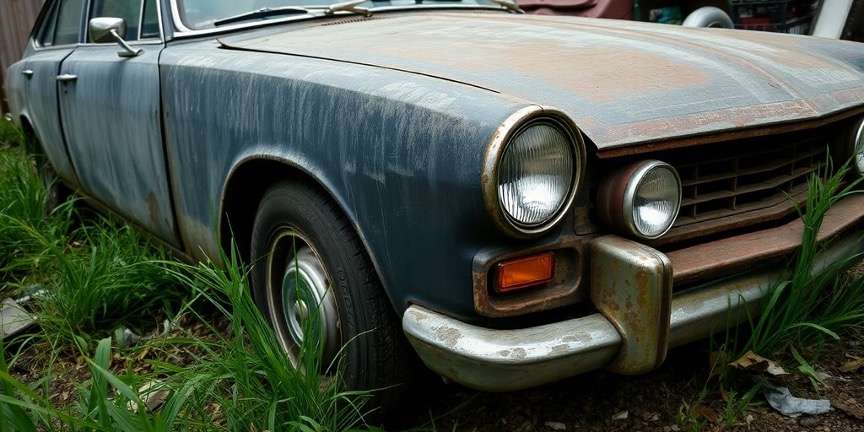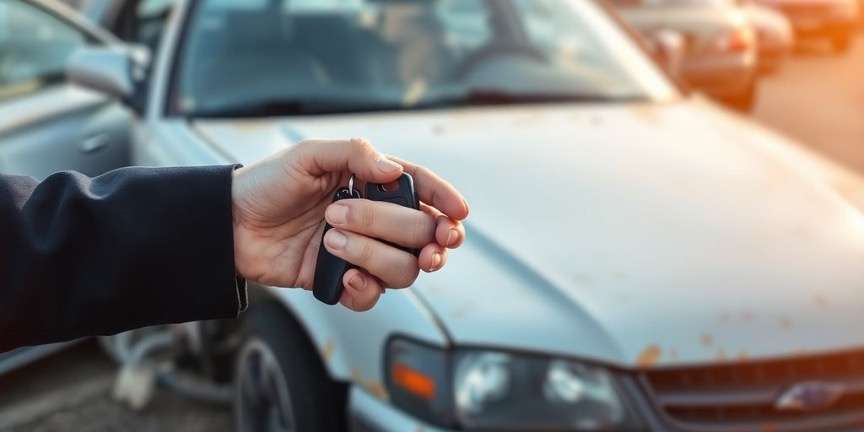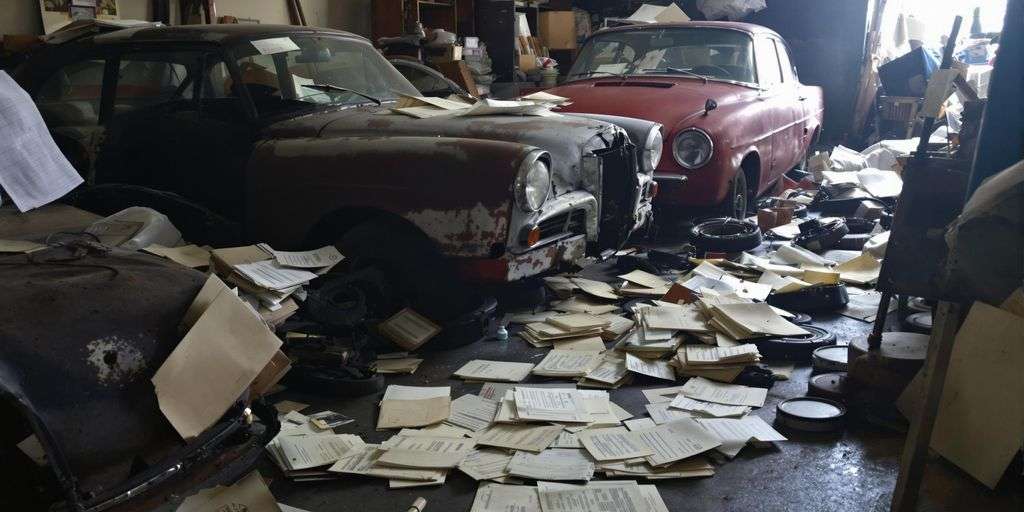Key Takeaways
- Always have your vehicle title ready; it's proof you own the car and can sell it.
- A bill of sale is crucial as it records the transaction between you and the buyer.
- Check if you need a release of liability form to avoid future responsibilities.
- Different states have different requirements, so check your local DMV regulations.
- Don't forget to cancel your insurance and registration after the sale.
Understanding the Importance of Proper Documentation
Why Documentation Matters in Selling a Junk Car
Selling a junk car isn't just about handing over the keys and getting cash. It's about ensuring all the paperwork is in order to avoid future headaches. Proper documentation is your shield against potential legal troubles. Imagine selling your car, only to find out later that you're still liable for it because the ownership wasn't transferred correctly. That's a nightmare nobody wants.
Here's why documentation is crucial:
- Legal Protection: Documents like the vehicle title and bill of sale legally transfer ownership and protect you from future liabilities.
- Proof of Sale: Having a paper trail proves the transaction happened, which is essential if disputes arise later.
- Avoiding Penalties: Without the right paperwork, you could face fines or legal consequences.
Commonly Required Documents for Junk Car Sales
When you're ready to sell your junk car, you'll need a few essential documents:
- Vehicle Title: This proves you own the car and have the right to sell it.
- Bill of Sale: This document records the transaction details, including the buyer and seller's information.
- Proof of Identity: A government-issued ID to verify your identity.
Sometimes, additional documents like a lien release or registration papers might be needed, depending on your state.
Consequences of Missing Paperwork
Skipping out on documentation can lead to some serious issues. If you don't have the right papers, you might not be able to complete the sale. Even worse, you might still be held responsible for the car if it's involved in something shady after the sale.
“Selling your junk car without proper documentation is like leaving your front door wide open—you're just asking for trouble.”
In some cases, missing paperwork can delay the sale process or reduce the car's value. It's always better to have everything in order before you start the selling process.
Gathering Essential Documents for a Junk Car Sale
Vehicle Title and Proof of Ownership
First things first, you need the vehicle title. This piece of paper is like the golden ticket in the car-selling world. It proves you own the car and have the right to sell it. Without it, selling your junk car can be a nightmare. If your title is lost or damaged, you'll need to get a duplicate from your local DMV. Some states might let you use a registration paper or a bill of sale as proof of ownership, but it’s always best to check.
Bill of Sale and Its Significance
Next up, the bill of sale. This document is your best friend when it comes to recording the sale. It should include all the juicy details: buyer and seller information, the sale price, and the vehicle identification number (VIN). Having a bill of sale is crucial because it legally transfers ownership and protects you from future liabilities. Make sure both you and the buyer sign it.
Handling Lien Releases and Other Legal Papers
If there's a lien on your car, you'll need a lien release. This document shows that any debts tied to the car are paid off. Without it, you can't transfer ownership. Plus, don't forget about other legal papers like a release of liability form. This form is super important because it lets the DMV know you’re no longer responsible for the car. Make sure to handle all these documents carefully to avoid any headaches down the road.
Gathering all necessary documents before selling your junk car ensures a smooth transaction and helps you avoid any legal troubles later on. Remember, paperwork might seem like a hassle, but it’s your best bet for a straightforward sale.
Navigating State-Specific Requirements
When it comes to selling a junk car, understanding the varying paperwork requirements across different states can save you a lot of headaches. Each state has its own set of rules, and knowing these can help you avoid unnecessary delays or complications.
Understanding DMV Regulations
Every state has its own Department of Motor Vehicles (DMV) or equivalent agency that sets the rules for vehicle sales. It's crucial to check with your local DMV to understand what documents you need to sell your junk car legally. This might include a title transfer, a bill of sale, and possibly a release of liability. Some states may even require emissions certificates or safety inspections, though this is less common for junk cars.
State Variations in Required Paperwork
The paperwork needed can vary significantly from state to state. Here’s a quick breakdown of what you might encounter:
- Title Transfer: Most states require the vehicle title to be signed over to the buyer. In some states, like California, the vehicle title must be properly completed with the seller's signature.
- Bill of Sale: While not always mandatory, a bill of sale is recommended as it provides proof of the transaction.
- Emissions and Safety: Although rare for junk cars, some states might require emissions testing or a safety inspection.
How to Obtain State-Specific Forms
Getting the right forms can sometimes feel like a scavenger hunt. Start by visiting your state's DMV website, where you'll often find downloadable forms and detailed instructions. If you're unsure, a quick call to the DMV can clarify any doubts. Remember, having the right paperwork not only speeds up the sale but also protects you from future liabilities.
Preparing the right documents for selling your junk car is like packing for a trip—get it right, and your journey will be smooth. Forget something, and you might end up with a lot of unnecessary stress.
Steps to Prepare Your Junk Car for Sale

Cleaning and Removing Personal Items
Before you even think about selling that old clunker, it's a good idea to tidy it up. A clean car can seem more valuable, even if it's headed for the junkyard. Grab some basic cleaning supplies like a vacuum, some glass cleaner, and maybe a microfiber cloth. Don't forget dish soap or baking soda for stubborn spots. Make sure to:
- Check the glove box, trunk, and under the seats for any personal stuff.
- Remove any valuables or accessories you might want to sell separately.
- Give the car a quick wash and clear out any trash.
Assessing the Car's Condition
Taking a good look at your car's condition helps you figure out its worth. Is it better to sell it as a whole or piece it out? Here's what to consider:
- Overall Condition: Look for visible damage, rust, or missing parts.
- Working Parts: Identify parts that still work, like the engine, transmission, or electronics.
- Documentation: Gather any service records or receipts for recent repairs.
Assessing these factors can help you research the market value of your vehicle's parts and ensure you get a fair price.
Gathering Maintenance Records
Having proof of regular maintenance can boost the perceived value of your junk car. Collect records of any services done, noting dates, mileage, and details of the work. This provides a clear picture of your car's history, giving potential buyers more confidence in their purchase.
Even if your car's headed for the scrap heap, showing it got some TLC over the years can make a difference.
Organizing these steps before selling your junk car can help smooth the process and maybe even snag you a better deal.
Finalizing the Sale and Transferring Ownership

Completing the Sale with a Junkyard
When you're ready to close the deal with a junkyard, there are a few key steps to follow. Start by ensuring all the necessary paperwork is in order. This includes the bill of sale and the vehicle title, if you have it. The bill of sale is crucial as it acts as a legal record of the transaction, protecting both you and the buyer. If your state requires notarization, both parties will need to sign the document in front of a notary public.
Next, negotiate the final price with the junkyard. Don't be afraid to use any recent repairs or valuable parts as leverage to get a better offer. Once you've agreed on a price, ensure that payment is made in cash or through a secure method.
Transferring Ownership Legally
Transferring ownership legally is a critical step. Begin by signing over the vehicle title to the buyer. If the title is missing, check with your local DMV for alternative documentation options. In some cases, a registration certificate or insurance document can serve as proof of ownership.
It's also important to complete a release of liability form, which absolves you of any responsibility for the vehicle once it's sold. This form is often submitted to your DMV to officially record the change in ownership.
Canceling Insurance and Registration
After the sale, you'll need to cancel your car insurance to avoid any unnecessary charges. Contact your insurance provider and inform them of the sale, providing any required documentation they might need.
Additionally, notify your local DMV about the sale to cancel the vehicle's registration. This step is essential to prevent any future liabilities, such as fines or penalties, associated with the vehicle. Often, you'll need to return the license plates to the DMV as part of this process.
Selling a junk car might seem like a hassle, but with the right steps, you can make it a smooth process. By properly handling the paperwork and legalities, you're not just clearing out space but also protecting yourself from future headaches.
Tips for a Smooth Junk Car Sale Process
Choosing a Reputable Junkyard
Selecting the right junkyard can make all the difference in your selling experience. Start by researching local options. Read reviews and ask around for recommendations. A reputable junkyard will have good feedback from previous sellers and adhere to local regulations. Make sure they are licensed and have a clear buying process. This will save you from potential headaches down the line.
Getting Multiple Quotes
Don't settle for the first offer you receive. Reach out to several junkyards to get a sense of your car's worth. Provide accurate information about the car's condition to get the most realistic quotes. This way, you can ensure you get the best value for your junk car. Remember, honesty is key to avoid disputes or price adjustments later.
Avoiding Common Pitfalls in Junk Car Sales
When selling your junk car, keep an eye out for common traps. First, always remove personal belongings from the vehicle before handing it over. Check every nook and cranny, including the glove compartment and under seats, to ensure nothing is left behind. Secondly, cancel your insurance policy once the sale is complete to avoid unnecessary payments. Lastly, be wary of scams. If an offer seems too good to be true, it probably is. Stick to reputable buyers and avoid any that require upfront fees or seem suspicious.
Selling a junk car might seem daunting, but with the right approach, it can be a straightforward process. By choosing a good junkyard, getting multiple quotes, and steering clear of common pitfalls, you'll set yourself up for a successful sale.
Wrapping It Up: Your Junk Car Sale Made Easy
So, you've got all the paperwork sorted and you're ready to part ways with your old junker. It's not just about clearing space in your driveway; it's about doing it right. Having the right documents, like the car title and a bill of sale, makes the whole process smoother. Don't forget to cancel your insurance and take those plates off before you hand over the keys. And hey, if you're feeling a bit overwhelmed, remember that a good junk car company can help you navigate the paperwork maze. With everything in order, you're not just selling a car—you're making sure it's done hassle-free. Here's to a clutter-free driveway and a little extra cash in your pocket!
Frequently Asked Questions
What papers do I need to sell my junk car?
You'll need the car title to prove ownership, a bill of sale to record the transaction, and possibly a release of liability form depending on your state.
Can I sell my junk car without a title?
In some places, you might be able to sell your junk car without a title using other proofs of ownership, like a registration document or bill of sale. Check with your local DMV for specific rules.
How do I get a new title if I lost mine?
You can request a replacement title from your local DMV. You'll need to fill out a form and pay a fee.
What should I do with the license plates after selling my junk car?
After selling, remove the license plates and return them to the DMV. This helps avoid any future liabilities.
Do I need to cancel my car insurance after selling it as junk?
Yes, you should cancel your insurance once the sale is complete to avoid paying for a car you no longer own.
How can I make sure I'm getting a fair price for my junk car?
Get quotes from several junkyards to compare offers, and ensure you provide honest details about your car's condition.



